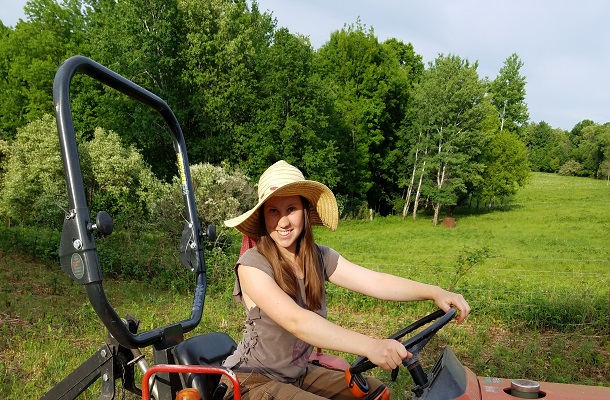Tractor overturns are the leading cause of farm-related deaths. That’s why it’s so important that each tractor have a rollover protective structure (ROPS).
Thanks to a generous gift from the Marshfield Parish Truck & Tractor Pull, the National Farm Medicine Center, part of Marshfield Clinic Research Institute, will award a free ROPS retrofit in a drawing Friday, July 11, during the 12th annual Pull at Central Wisconsin State Fairgrounds. All Wisconsin farmers are eligible. Just stop by the National Farm Medicine Center table on the Midway between the hours of 5 p.m. and 8 p.m. on July 11. The winner will be announced around 9 pm.
One lucky tractor owner will get the free ROPS, and all who register will be enrolled in the National Farm Medicine Center Wisconsin ROPS Rebate Program, which (funding permitting) partially reimburses owners toward the total cost of purchasing, shipping and installing individual ROPS. Enrollees will be mailed retrofit options and costs for their particular tractor.
In addition, Farm Medicine and the Research Institute will sponsor the “Ice Cream Dash” between 8 p.m. and 9 p.m. in the stands and in the pit area. Proceeds from the Ice Cream Dash will be dedicated to the Wisconsin ROPS Rebate Program.
A ROPS is an operator compartment structure (usually cab or rollbar) intended to protect farmers from injuries caused by overturns or rollovers. More than half the tractors in Wisconsin do not have this protection. ROPS did not become standard on U.S.-manufactured tractors until 1985. A ROPS, when used with a seatbelt, is 99 percent effective in preventing injury or death in the event of an overturn. Tractor owners can also register for a ROPS rebate via the national hotline, 1-877-767-7748 (1-877-ROPSR4U), or the Web site, www.ropsr4u.com. Either way, the owner provides basic information about his or her farm and tractors. Program staff do all the leg work.
Parish Pull attendees are also encouraged to visit the Tick Inventory via Citizen Science (TICS) project table that night, where they can get tick collection kits and add to the more than 6,000 ticks already registered. TICS project information is being used to assess the risk of encountering a tickborne disease, and to learn more about who is being exposed and diagnosed with tickborne diseases. Also be sure to pick up one of the new (free) tick removal kits.

